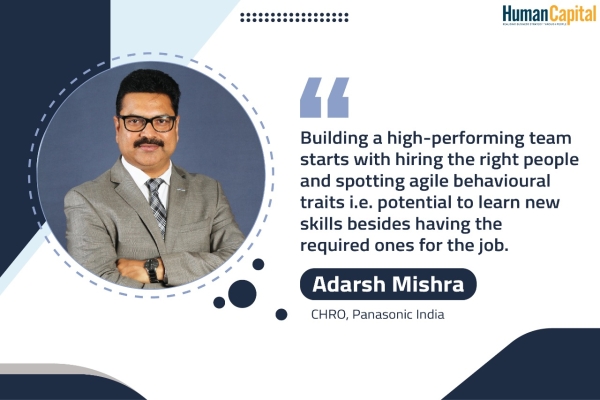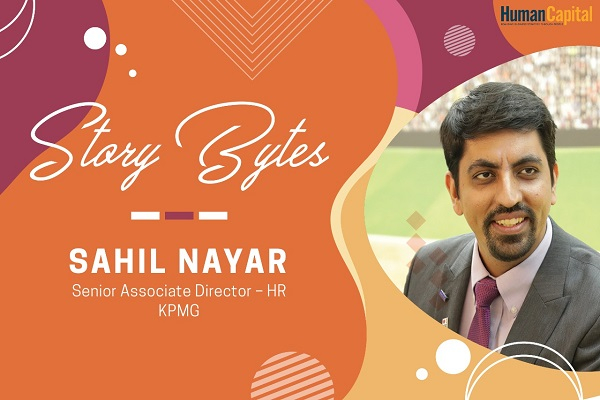Performance Measurement was always a grey area even in normal times. And remote working, less face-to-face interaction and blurred work boundaries have made it all the more important.
COVID-19 has altered our outlook towards life and work. What was not imagined as possible until some time ago has become the new normal, and after a few initial teething issues, we have managed to settle into it comfortably. While there has been a sea change in our functioning, our approach towards measuring performance demands an update to keep up with such tough times.
Performance Measurement was always a grey area even in normal times. And remote working, less face-to-face interaction and blurred work boundaries have made it all the more important. While certain industries such as IT have boomed, others such as Hospitality and Travel have taken a major hit. This has necessitated the need to re-evaluate the way we measure employee performance in the coming years.
Here are a few suggestions for Performance Managers:–
1. Focus on Human Touch: The past year has been tough - psychologically and emotionally. Many lost their near and dear, while others struggled to protect themselves and their families. Managing children along with work and home added to the burden. While everyone tried to manage the situation at hand, as a Manager, it is imperative to understand that there were hiccups along the way. There might have been delays and decreased efficiency issues with a few team members. However, at this time, it is important to be mindful of the situation the person may have been in. While team members who outperformed need to be rewarded, it is essential to have a non-biased outlook towards those who could not rise to the occasion.
2. Celebrate small victories: With remote working, formal reward and recognition have also taken a back seat. While online applause cannot completely replace the feeling of face-to-face recognition ceremonies, it is still a good start. During this time, it is also important to appreciate those who went out of the way to help their teams perform better by sharing their workload, thus propelling the team forward as an important catalyst. Continuing with the practice of monthly/ quarterly recognition on Teams/ Zoom meetings can keep the team motivated to go the extra mile.
3. Continuous Feedback: Creating visibility had always been important, however, the modes of creating visibility for oneself have gone down drastically. Unless team members are provided with continuous feedback on their performance they will be lost in terms of where they need to focus. Weekly/Fortnightly catchups with each team member can be a good medium to check in on them along with sharing a few insights which can provide them clarity on which direction to move in. Transparency is the key here. The more honest and transparent one can be, the better.
4. Redefine Targets: Given a volatile market, it is imperative to relook at the existing targets and redefine some of them, if need be, to suit the situation. Team members need to be kept informed about the latest organisational updates in terms of plans for the coming quarters, so that it becomes easier to understand the change in their respective targets and priorities. Remote working may have blurred work boundaries; however, it is important to be mindful of the fact that promoting a culture of burnout will only have negative lasting consequences for the team.
We have been forced to adapt to the new normal. Teams have become more dynamic; and targets have become agile, thus augmenting the need to relook at the way we measure performance and provide feedback. The need of the hour is for managers to define clear goals, set measurable targets and provide continuous feedback to their teams in order to ensure that a high-performance culture is created and maintained within the organisation.
.png)
Do you think hybrid work arrangements would be a common feature of the workplaces going forward?
Trending
-
SBI General Insurance Launches Digital Health Campaign
-
CredR Rolls Out 'Life Happens' Leave For Its Employees
-
Meesho Announces 30-Week Gender-Neutral Parental Leave Policy
-
Microsoft Unveils Tech Resilience Curriculum To Foster An Inclusive Future
-
60% Indian Professionals Looking For Job Change Due To COVID: Survey
-
SpringPeople And Siemens Collaborate For Digital Transformation Push
-
86% Professionals Believe Hybrid Work Is Essential For Work Life Balance: Report
-
Almost 1 In Every 3 People's Personal Life Affected Due To Work Stress
-
Meesho Rolls Out Reset And Recharge Policy For Employees
-
80% Of Talent Leaders & Academics Say Pandemic Changed Skill Needs For Youth: Report
-
Hero Electric Rolls Out 'Hero Care' Program For Employees
-
Human Capital In Collaboration With ASSOCHAM Hosts Virtual Conference
-
IKEA India, Tata STRIVE Collaborate To Create Employability And Entrepreneurship Opportunities
-
SAP India, Microsoft Launch Tech Skilling Program for Young Women
-
DXC Technology, NASSCOM Collaborate For Employability Skills Program
-
Lenskart To Hire Over 2000 Employees Across India By 2022
-
Mindtree Launches Learn-and-Earn Program
-
Tata AIA Extends 'Raksha Ka Teeka' To Its Employees
-
Swadesh Behera Is The New CPO Of Titan
-
NetConnect Global Plans To Recruit 5000 Tech Professionals In India
-
Hubhopper Plans To Hire 60% Of Indian Podcasters By 2022
-
Corporate India Needs More Women In Leadership Roles: Report
-
Aon to Invest $30 Million and Create 10,000 Apprenticeships by 2030
-
Tech Mahindra Launches ‘Gift a Career’ Initiative for Upskilling of Youth
-
40% Women Prefer Flexible Working Options in Post-COVID World: Survey
-
3 out of 4 companies believe they can effectively hire employees virtually: Report
-
Vodafone , CGI and NASSCOM Foundation launch digital skills platform
-
Odisha: Bank, postal employees to deliver cash for elderly, differently-abled persons
-
Skill India launches AI-based digital platform for "Skilled Workforce"
-
Hiring activity declines 6.73% in first quarter: Survey
-
70% startups impacted by COVID-19 pandemic
-
Bajaj Allianz Life ropes in Santanu Banerjee as CHRO
-
Over 70 Percent MSMEs look at cutting jobs to sustain businesses
-
93 Per Cent employees stressed about returning to office post-lockdown
-
Johnson & Johnson India announces family benefits for same gender partners
-
Indian firms turning friendly towards working mothers
-
Welspun India names Rajendra Mehta as new CHRO
-
Wipro partners with NASSCOM to launch Future Skills platform



Human Capital is niche media organisation for HR and Corporate. Our aim is to create an outstanding user experience for all our clients, readers, employers and employees through inspiring, industry-leading content pieces in the form of case studies, analysis, expert reports, authored articles and blogs. We cover topics such as talent acquisition, learning and development, diversity and inclusion, leadership, compensation, recruitment and many more.
Subscribe Now












































Comment